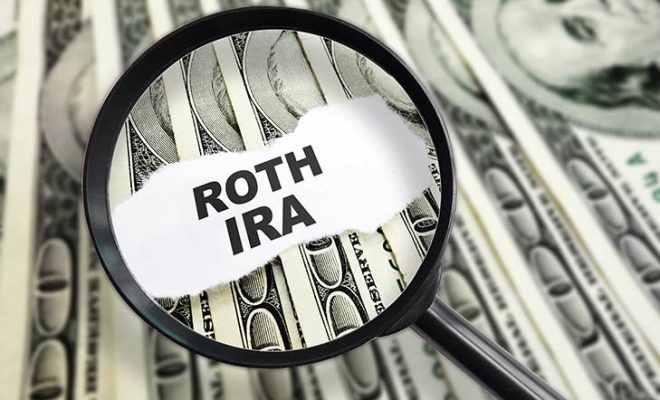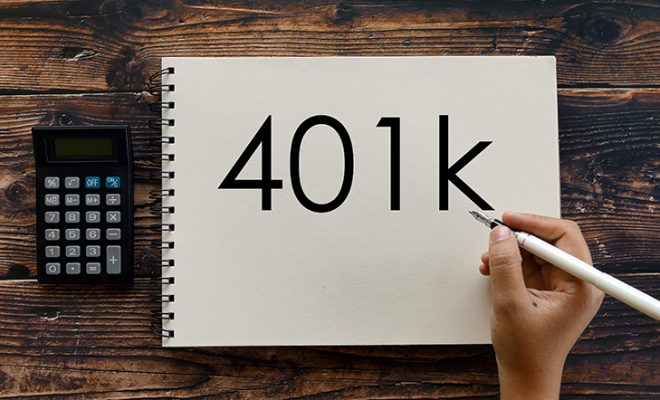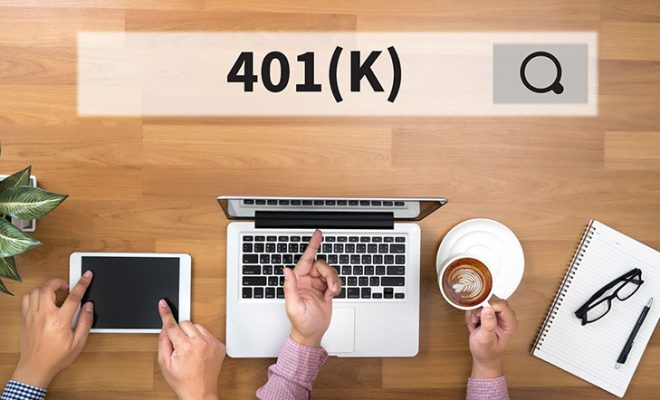How are Roth IRA Distributions Taxed?

A Roth Individual Retirement Account (IRA) is a tax-advantaged account that can be used to build your retirement corpus and enjoy tax benefits. Unlike a Traditional IRA, contributions to a Roth IRA are made with after-tax money, which means that contributions are not tax-deductible in the year they are made. Earnings on investments within a Roth IRA grow tax-free, and withdrawals made in retirement are also tax-exempt, provided the account has been open for at least five years and the individual is at least 59.5 years old at the time of withdrawal. Additionally, Roth IRAs do not require individuals to take Required Minimum Distributions (RMDs).
A financial advisor can help you understand Roth IRA taxes and plan your contributions and withdrawals to get the most out of the account.
This article discusses Roth IRA tax benefits in detail and provides insights on how Roth IRA distributions are taxed in the case of qualified and non-qualified withdrawals.
Roth IRA Distribution Tax Rules
Typically, a Roth IRA is not taxed when you withdraw your money in retirement. But you may incur Roth IRA taxes in some situations. Understanding these can help you plan your finances efficiently. Funds in a Roth IRA can incur tax and penalties if the withdrawals are unqualified.
IRS tax and penalty rules:
1. If you make an early withdrawal from a Roth IRA before the age of 59.5, you may incur a 10% penalty
Withdrawing funds from a Roth IRA before the age of 59.5 can subject you to a 10% early withdrawal penalty on the amount of the withdrawal, in addition to ordinary income taxes charged as per your applicable tax rates.
There are some exemptions where the IRS does not impose a penalty, such as:
- Using the funds to pay a medical insurance premium after a job loss.
- Withdrawing funds in the case of total and permanent disability of the IRA owner.
- Using the money to cover qualified higher education expenses.
- Using the funds by qualified military reservists called to active duty.
2. If you contribute over the permissible annual contribution limit, you may be subject to a 6% excess contribution penalty
Contributing more than the applicable annual limit to your Roth IRA or making a contribution when you are not eligible may subject you to a 6% excess contribution penalty on the additional amount. The 6% penalty will be charged every year until you remove any excess Roth IRA contributions from your account.
To avoid exceeding the contribution limit, you must understand your income eligibility limit and the yearly contribution limit. Here’s how this works:
I. Income eligibility limits
You can contribute to a Roth IRA if you earn income in the following ways:
- If you work for someone and earn a salary, commission, bonus, tips, etc., you can contribute to a Roth IRA.
- If you run your business or farm and earn business income, you can contribute to a Roth IRA.
- You can also contribute if you earn untaxed combat pay, military differential pay, and taxed alimony.
The following types of incomes do not qualify for a Roth IRA contribution:
- Child support
- Untaxed alimony
- Social Security benefits
- Unemployment benefits
- Wages earned by penal institution inmates
II. Income limits
The income limit for a Roth IRA is determined on the basis of your Modified Adjusted Gross Income (MAGI). Here are the contribution limits based on your MAGI in 2023:
| Tax filing status | MAGI | Contribution limit |
| Single, head of household, or married taxpayer filing separately and not living with their spouse at any time during the last year | Less than $138,000 | $6,500 or $7,500 if 50 or older |
| $138,000 to $152,999 | Begin to phase out | |
| $153,000 or more | Ineligible for direct Roth IRA | |
| Married taxpayer filing separately and have lived with their spouse at some time during the last year | $228,000 or more | Ineligible for direct Roth IRA |
| Less than $10,000 | Begin to phase out | |
| $10,000 or more | Ineligible for direct Roth IRA | |
| Married taxpayer filing jointly and qualifying widow(er) | Less than $218,000 | $6,500 ($7,500 if age 50 or older) |
| $218,000 to $227,999 | Begin to phase out |
III. Contribution limits
| Age | Contribution limit |
| Under 50 years | $6500 |
| 50 years or older | $7500 |
| Catch-up contribution if you are 50 or older | $1000 |
Are Roth IRA earnings taxable?
The taxability of your Roth IRA distributions will depend on your age and purpose for withdrawal.
1. If you are aged 59 or under, you can be taxed in the following ways:
- If you draw funds prematurely, you will pay applicable taxes and a 10% penalty on the earnings.
- You will pay applicable taxes and a 10% penalty if you have not held the account for at least five years prior to the distribution.
When will you not be taxed on your Roth IRA?
- You will not pay taxes or a 10% penalty on the contributions made to the account. Only the earnings will be taxed and imposed with a penalty.
- You will not pay tax if you withdraw up to $10,000 in a lifetime to pay for a first-time home purchase.
- You will not pay tax if you use the money to pay for qualified education expenses.
- You will not pay tax if you use the distribution for qualified expenses related to a birth or adoption.
- You will not pay tax if you become disabled or in the unlikely event of your demise.
- You will not pay tax if you use the money to pay for unreimbursed medical costs or health insurance during unemployment.
- You will not pay tax if the distribution is made in equal periodic payments.
2. If you are aged 59.5 or more, you can be taxed in the following ways:
You will pay applicable taxes and a 10% penalty if you have not held the account for at least five years. Only your earnings will be subjected to the penalty.
When will you not be taxed on your Roth IRA?
- You will not pay tax if you have held the account for at least five years.
- All other distributions will not be taxed after the age of 59.5 years. You can use the money for any need and choose when you wish to draw your money. You can also let your money lie in the Roth IRA for a lifetime if that is what you want. Unlike a Traditional IRA, a Roth IRA does not have any Required Minimum Distributions (RMDs). So, you have no further rules to follow with respect to withdrawals at this stage.
SPONSORED WISERADVISOR
Important things to know about Roth IRA taxes and penalties
- A Roth IRA is taxed in the years you contribute. Therefore, it may not be ideal to lower your tax liabilities in the years prior to retirement. If tax is a concern for you during these years, a Traditional IRA may be a better option.
- While an excess contribution will be imposed with a 6% penalty, you can take some measures to avoid it. The IRS offers two solutions to correct an excess contribution. Firstly, you can withdraw your excess contribution and income earned on it before the due date for your tax return. Secondly, you can recharacterize your excess Roth IRA contributions into a Traditional IRA. In this case, the excess amount will be transferred to a Traditional IRA.
You can also accommodate the excess contributions to a future year. However, in this case, you will pay the 6% penalty in the year the excess contribution was made.
5 things to do to avoid Roth IRA taxes and penalties
Here are some simple tips that can help:
1. Stay up to date with the latest Roth IRA contribution limits to avoid errors
One of the most important things you can do to avoid taxes and penalties is to stay up to date with the latest limits. The contribution limits may be altered every year based on several factors, such as inflation. For instance, the contribution limit was $6,000 in 2022 for people below the age of 50. In 2023, this limit has been increased to $6500. It is essential to check with the IRS or a financial advisor to ensure you are contributing the correct amount.
2. Use online resources to understand how much you can contribute as per your MAGI
Your MAGI determines how much you can contribute to a Roth IRA. If your MAGI is too high, you may not be eligible to contribute to a Roth IRA at all. The IRS provides online resources to help you calculate your MAGI and determine how much you can contribute. Using these resources can help you avoid contributing too much or too little, which can result in taxes and penalties.
3. Understand all rules of IRA contribution and distribution to plan ahead effectively
To avoid taxes and penalties, it is vital to understand all the rules of IRA contribution and distribution. For example, contributions to a Roth IRA must be made with after-tax dollars. Additionally, you cannot withdraw earnings from a Roth IRA penalty-free until you are 59.5 years old and have held the account for at least five years. Understanding these rules can help you plan your contributions and withdrawals effectively to avoid taxes and penalties.
4. Plan your Roth IRA distributions to avoid non qualified withdrawals
Distributions from a Roth IRA can be tax-free and penalty-free if certain conditions are met. To avoid taxes and penalties, you must plan ahead for your distributions. You may be subject to taxes and penalties if you take distributions before meeting some conditions laid down by the IRS. If you need to withdraw early, assess the circumstances that qualify for a tax exemption. If you have an immediate financial need, consider liquidating other assets after comparing the tax liabilities and penalties of all your investments.
5. Talk to a financial advisor to plan your IRA contributions and withdrawals and avoid taxes and penalties
A financial advisor can help you plan your contributions and withdrawals to avoid taxes and penalties. They can also help you understand the rules and tax limitations of a Roth IRA and provide guidance on how to manage your investments effectively. Working with a financial advisor can help you make informed decisions and avoid costly mistakes that could result in unwanted cash outflows.
To conclude
A Roth IRA is a great way to save for your retirement and enjoy tax-free growth and withdrawals. However, following the rules and limitations is essential to lower your overall taxes and avoid penalties. Stay up to date with the latest limits, use online resources, and understand the rules of contribution and distribution. In addition, plan ahead, and work with a financial advisor, so you can effectively manage your account, and enjoy Roth IRA tax benefits, and have a financially secure retirement.
Use the free advisor match service to find a financial advisor in your area who can help avoid taxes and penalties associated with Roth IRAs. All you have to do is answer a few simple questions based on your financial needs, and the match tool will help connect you with 1-3 advisors that are best suited to meet your financial requirements.











